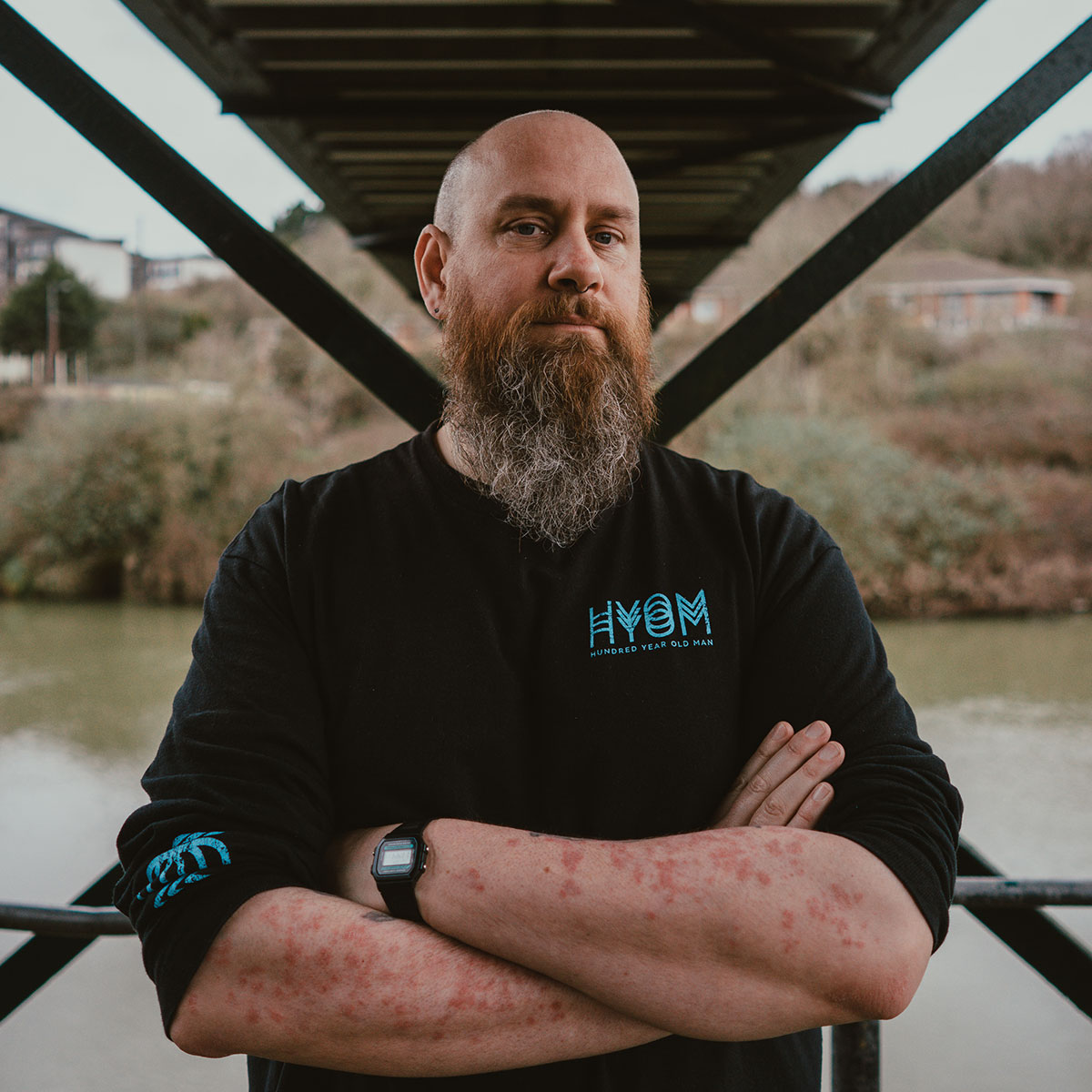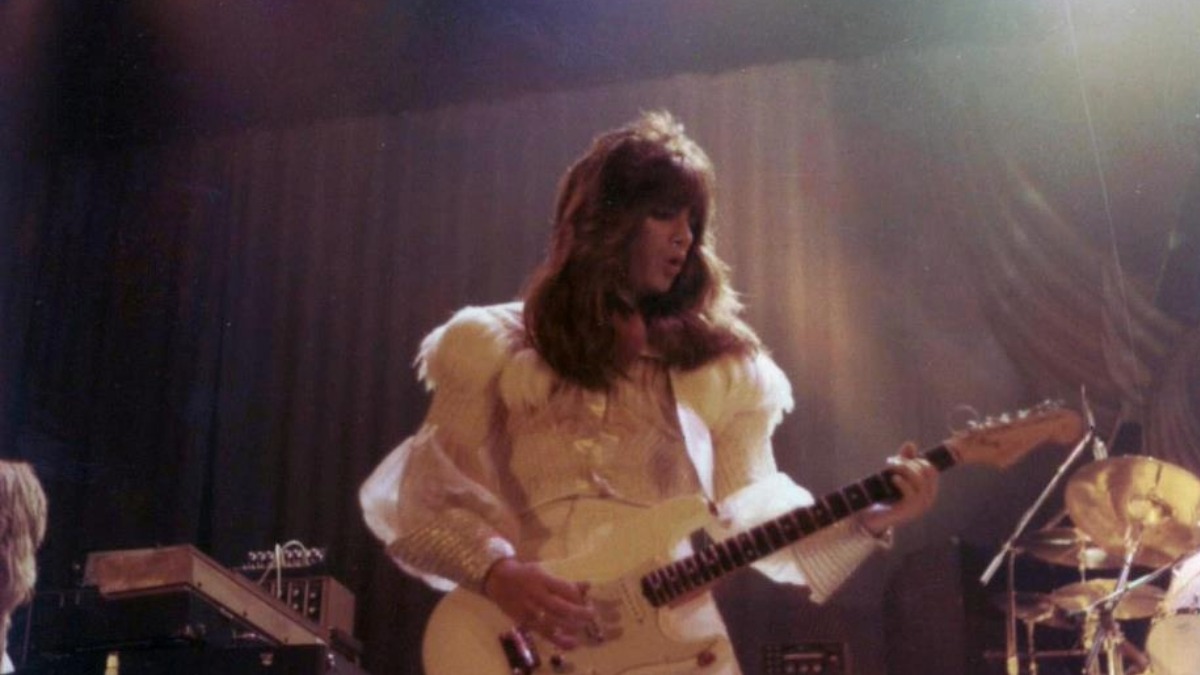“There’s a sleek look to bands like Loathe, Spiritbox or Knocked Loose. Spiky shapes are engrained in our values – we want to wear our influences on our sleeves”: Employed To Serve are re-embracing metal guitars – but dropping amps
Preparing to tour fifth album Fallen Star, guitarists Sammy Urwin and David Porter talk Scandi influences, trading offsets for baritones and amp modelers, and breaking down musical tribalism
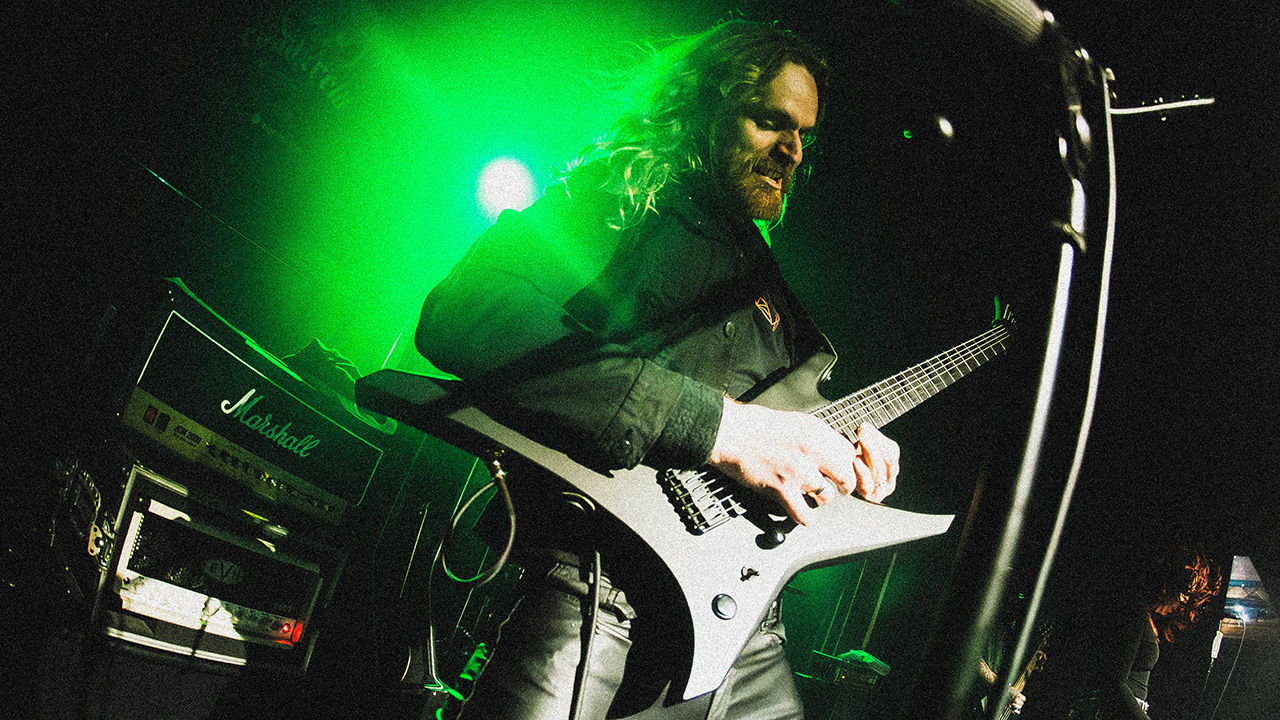
All the latest guitar news, interviews, lessons, reviews, deals and more, direct to your inbox!
You are now subscribed
Your newsletter sign-up was successful
From humble beginnings in Woking, UK, through the DIY metal scene to huge arena tours supporting Gojira a decade later, Employed To Serve have always combined a tireless work ethic with creative ambition, blending metalcore, thrash, nu-metal and hardcore into music that’s catchy and hard-hitting, while never losing their down-to-earth ethos.
Alongside the brutal riffs, groovy hooks and searing solos they’re known for, their new album Fallen Star reveals another leap forward in their sound. Guitarists Sammy Urwin and David Porter both agree that Now Thy Kingdom Come showcases where they’re currently at, combining the best of straight-up metal guitar playing, pinch harmonics and an epic finale, while encapsulating clean singing and melodic elements too.
Before ETS set out on their headline UK tour for new album, we sat down with Sammy and David to discuss their new sound development, guitar trends, the challenges of being a band in 2025 and more.
How did you both first get started with guitar?
Porter: “I actually started on bass around age 13 – the tone on Antichrist Superstar by Marilyn Manson really resonated with me. But then my brother got a guitar, and it had more strings so it was more interesting. We used to fight over it until my dad said, ‘Fine, I’ll buy you one!’
“One of my main inspirations is Trey Azagthoth. I never got on board with his solos, but I love Morbid Angel’s swamp riffs, particularly from Formulas Fatal to the Flesh on tracks like Nothing is Not. That was my jam.”
Urwin: “My dad was into AC/DC and Motörhead and he used to play a knock-off Les Paul. That caught my eye from a young age. Slipknot was the biggest turning point for me musically, but the first player who had a huge effect was Tom Morello. Rage Against the Machine was the first band where I learned every album.
All the latest guitar news, interviews, lessons, reviews, deals and more, direct to your inbox!
“Now we’re moving in a more straight-up metal direction, that Morello influence is less apparent – but it’s still in my playing. I’m quite a rhythmic player and incorporate a lot of mutes and percussive bits and bobs. There’s influence from Dimebag Darrell and Vivian Campbell too.”
What’s your live setup?
Urwin: “We’re both rocking the Quad Cortex because it sounds great. In terms of practicality, it’s the best thing ever because if we’re doing fly-in dates, like one day at a festival, it’ll sound exactly how you expect.”
Porter: “When we toured with Gojira I used a 6505+ head and I swear it would sound different every night. I always used to stress about tone, but this is so much easier.”
Urwin: “We still use cabs for smaller venues, but for this genre you need consistency. You want your guitar tone hitting hard every time without fail.”
Since ETS formed in 2011, you’ve moved from Fender offsets to LTD baritones, and you recently shared a playthrough of Atonement on brand new Jacksons. What’s inspired the shift?
Urwin: “It was partly our change in sound, but also, playing solos on that Fender Jazzmaster or Squier baritone with the big bolt-on neck was a nightmare. We needed something lightweight, neck-through and easy to glide up and get involved up the top-end.”
Porter: “I’m still playing my offset Monson PaleHorse baritone.”
Urwin: “For the record, we should shout out our lovely endorsers!”
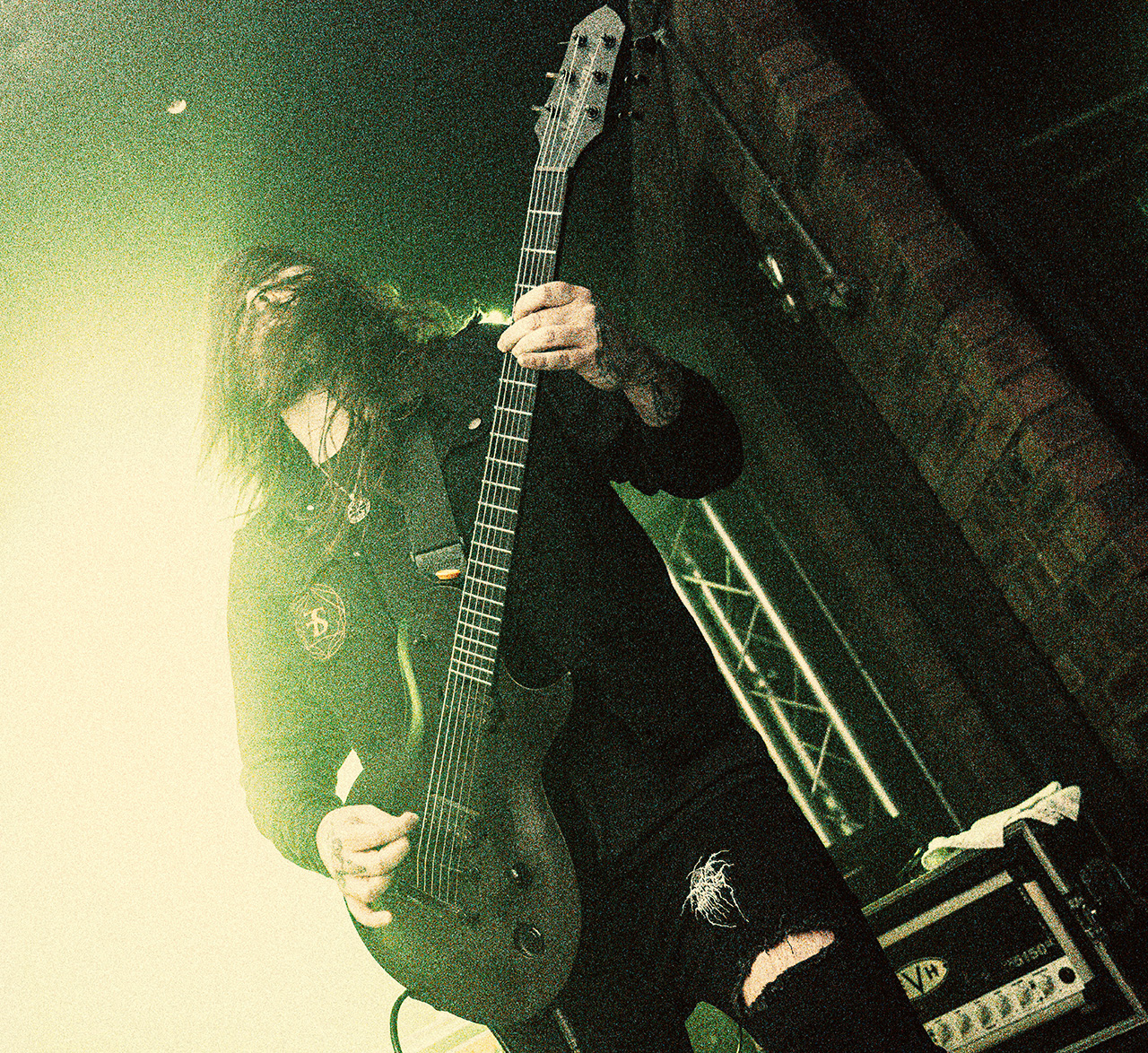
Porter: “I haven’t got the Jackson yet, but it’s on the way. I’m moving to their Les Paul baritone, and it’s a delight to play. I was always skeptical of Jacksons, but we went to their showroom, played on the new baritones and I fell in love.”
Urwin: “We were big fans of how hands-on Jackson were at championing younger bands. We were previously on the fence about their scale length, but their newer Pro Plus series baritones are 27in and look cool as hell. I’ve got the Warrior-shaped one.”
I’ve done my share of one-off shows on a Tuesday night… if you keep doing that you’re going to get a bit sick and tired
Sammy Urwin
There's been a trend in recent years of increasing numbers of offset guitars in metal. What’s your take?
Urwin: “I think it’d be weird not to mention the big impact of Loathe. There’s a sleek look to bands like them, Spiritbox or Knocked Loose. In my head, they’re not ‘spiky guitar bands’ – they’re dressed up super nice, playing fancy Gretsch or Fender guitars. Whereas we’re definitely more of an angular guitar band!”
Porter: “Way more right angles. And I think that modern metal sound with lower tunings has popularised baritones.”
Urwin: “But there’re plenty of bands out there playing classic metal shapes like Power Trip or Gatecreeper. Those traditional ‘spiky’ shapes are engrained in our values and we want to wear our influences on our sleeves. Morbid Angel, early Machine Head, early Roadrunner Records stuff. A Warrior shape shows what kind of band we are!”
You run Church Road Records, which supports guitar-driven UK metal, including flag-bearers like Svalbard and rising stars like Heriot, Lowen and Hidden Mothers. But with DIY venues struggling and touring more expensive than ever, what advice would you give guitar bands just starting out?
Urwin: “I think about this a lot, with the cost of living and Brexit. Touring is important to improve your live show. But I’ve done my share of one-off shows in Burnley on a Tuesday night. I realized soon enough that if you keep doing that you’re going to get a bit sick and tired.
“Bands need to work smart as well as hard. I’m not saying every band should get on TikTok or be an influencer, but it’s good to learn how social media tools suit your band to reach a wider audience.”
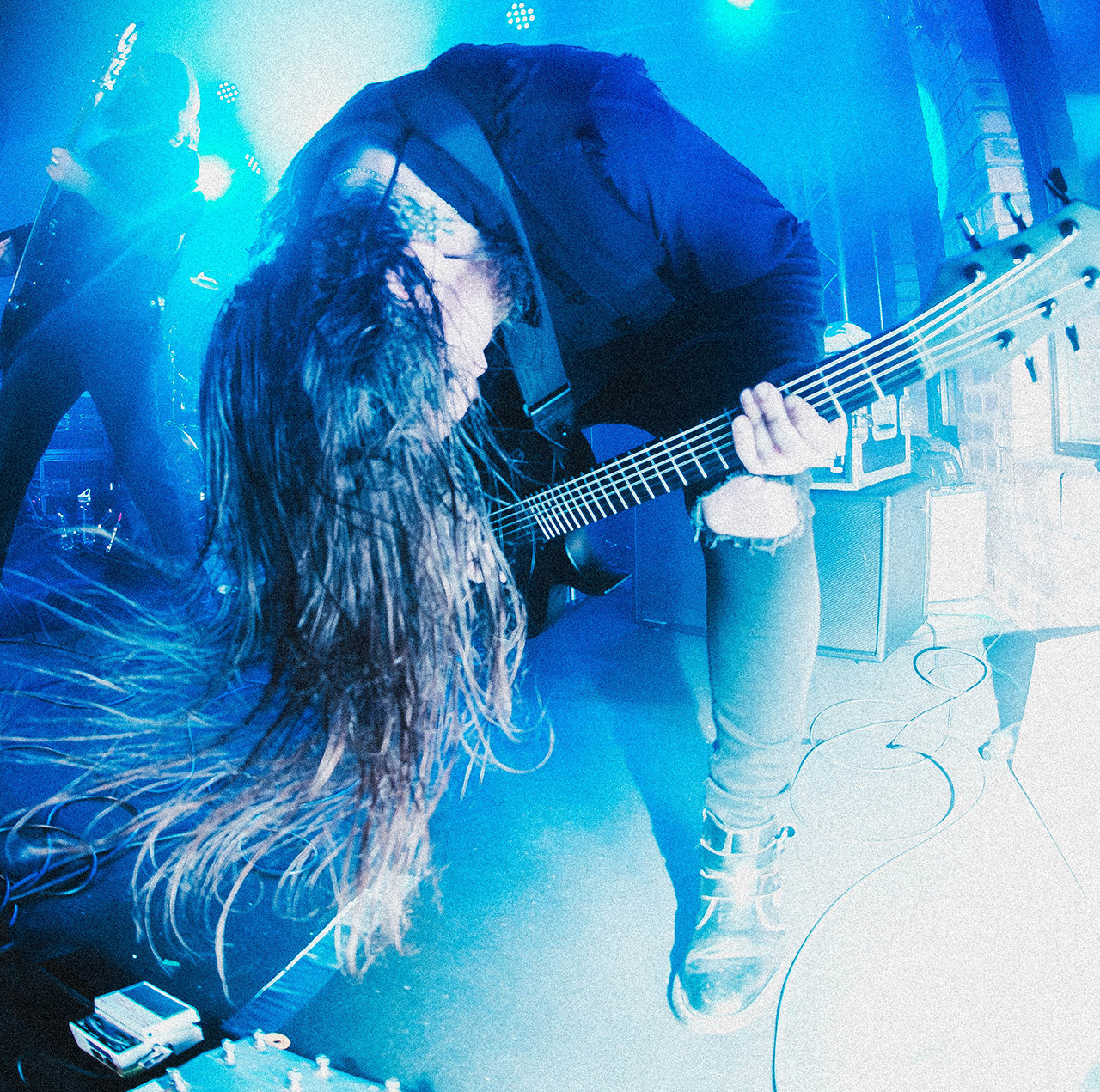
In past interviews you’ve talked about “heavy metal unity” – what does that mean in 2025 when people seem more divided than ever?
Porter: “We’re a band of misfits: our drummer used to play in Funeral For A Friend, our bassist is into metalcore and hardcore, I’m from a death metal and black metal background, and Sammy is from the death metal world.
“We shouldn’t work well together – but somehow do. It applies at a wider fanbase level too – heavy metal unity is about getting people to branch out.”
Urwin: “Yeah, that battle between the deathcore elite vs death metal is far less of a thing these days. As bad as streaming can be, it has eliminated really overt tribalism, so people are more open to extreme elements.
“People may say it’s cheesy, but the coolest thing about metal is you can go to any country in the world, and if someone’s wearing a shirt of a band you love, there’s an instant connection.”
- Fallen Star is on sale now.
Dan discovered guitar in his early teens – playing every day on a sunburst Les Paul copy he still regrets selling – and has never stopped. He studied English at Cambridge then spent several years working in Japan, addicted to karaoke and manga. His fiction, music journalism, essays and translations from Japanese have appeared in Granta, The Guardian and The Quietus, among others. He plays a battered but cherished Thunderbird in progressive sludge-metal band URZAH.
You must confirm your public display name before commenting
Please logout and then login again, you will then be prompted to enter your display name.


